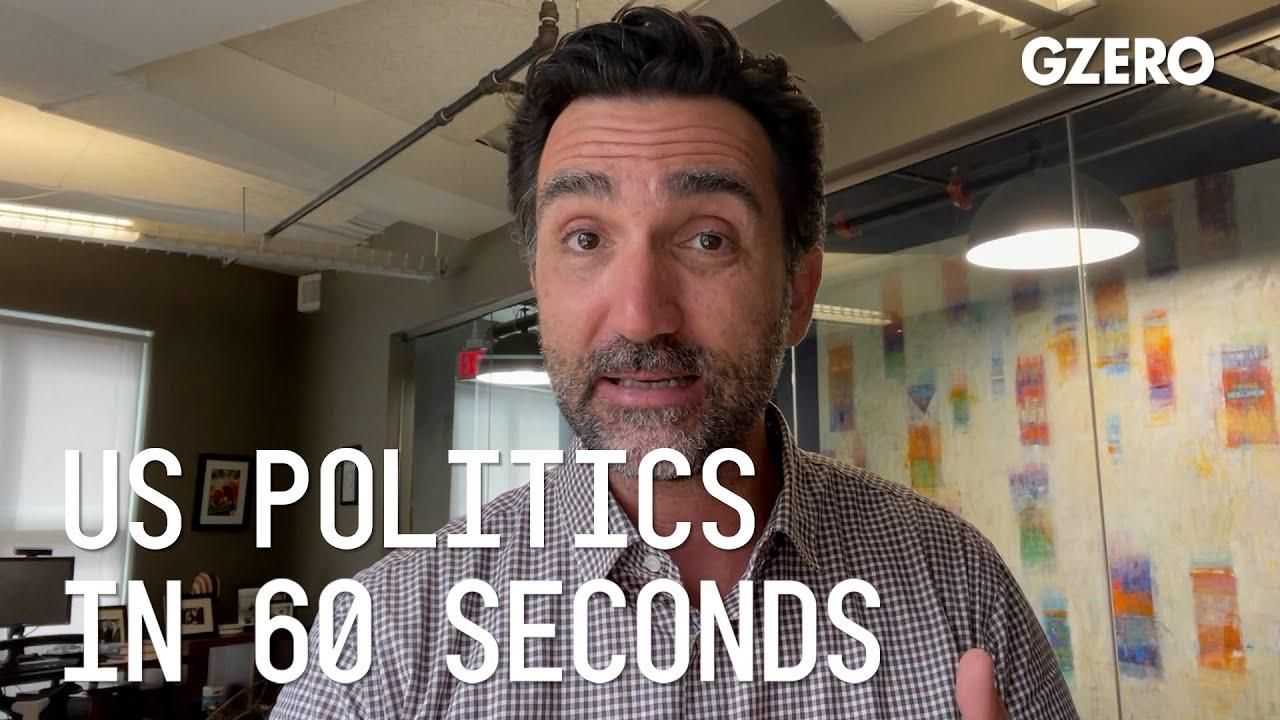US Politics In 60 Seconds
US ends federal mask mandate; COVID protection is personal responsibility

US Ends Federal Mask Mandate; Biden Unlikely to Appeal | US Politics In :60 | GZERO Media

Jon Lieber, head of Eurasia Group's coverage of political and policy developments in Washington, discusses the end of federal mask mandates:
What are the implications of the end of the federal mask mandate?
A federal judge in Florida this week ruled that President Biden's order requiring masks, facial coverings on federally regulated forms of transportation, including planes, buses, and trains is unlawful and should not be enforced. The mask mandate was the most visible and impactful mandate handed down by President Biden, who campaigned in 2020 on doing more than his predecessor, Donald Trump to stop the spread of the virus, but was really limited by the limited authorities the federal government has to take drastic measures to control public safety, most of which are controlled by the states. This is the latest setback to Biden's pandemic policies. Earlier this year, a federal judge said that he did not have the ability to impose a vaccine mandate for large employers. And at this point, Biden lacks both the policy tools and the political standing to do much else.
Polling indicates that Americans are done with the pandemic. The pandemic has dropped precipitously as a number one concern for voters who now say, they're more worried about things like inflation, immigration, crime, and more broadly healthcare. Air travel's hovering at about 90% of where it was from pre-pandemic levels and mobility data suggests that people are largely returning to their pre-pandemic routines.
One thing that has not happened, however, is a return to office: data from the largest cities shows that fewer than half of workers nationwide are returning to their pre-pandemic commuting patterns, which could end up being one of the more enduring shifts on public behavior coming out of the pandemic.
When it comes to masks, there's massive partisan splits in the polling, as there is many things, with Democrats and the vaccinated generally saying they support mask mandates when you're out and about with other people, and Republicans and the unvaccinated saying that they're largely against them.
Regardless, the Biden administration is unlikely to appeal this ruling and the mask mandates on planes is unlikely to come back. Case counts are low. The new variants are relatively mild. Biden has bigger political fights to fight. And the benefits of universal indoor masking are too tenuous to make this worth his while. The US has now firmly pivoted to the view that protection from the virus is a personal responsibility, which is why you're going to see vulnerable people and people who worried about the virus continue to mask and social distance. And the rest of the population will continue to try to return their lives as normal. The US is still on track to record its one millionth death from COVID sometimes soon and most of these deaths, sadly will have come under President Biden, despite his campaign promise to get the virus under control.
Walmart is investing $350 billion in US manufacturing. Over two-thirds of the products Walmart buys are made, grown, or assembled in America, like healthy dried fruit from The Ugly Co. The sustainable fruit is sourced directly from fourth-generation farmers in Farmersville, California, and delivered to your neighborhood Walmart shelves. Discover how Walmart's investment is supporting communities and fueling jobs across the nation.
President Trump’s second term has rapidly reshaped global politics, with the US wielding power more aggressively, targeting weaker countries and even allies, Stephen Walt explains on GZERO World.
Ian Bremmer breaks down a sudden and serious transatlantic crisis: President Trump’s insistence that the United States must have sovereignty over Greenland.
It’s been a year since President Trump returned to office. How has the world changed? Stephen Walt joins Ian Bremmer on GZERO World.